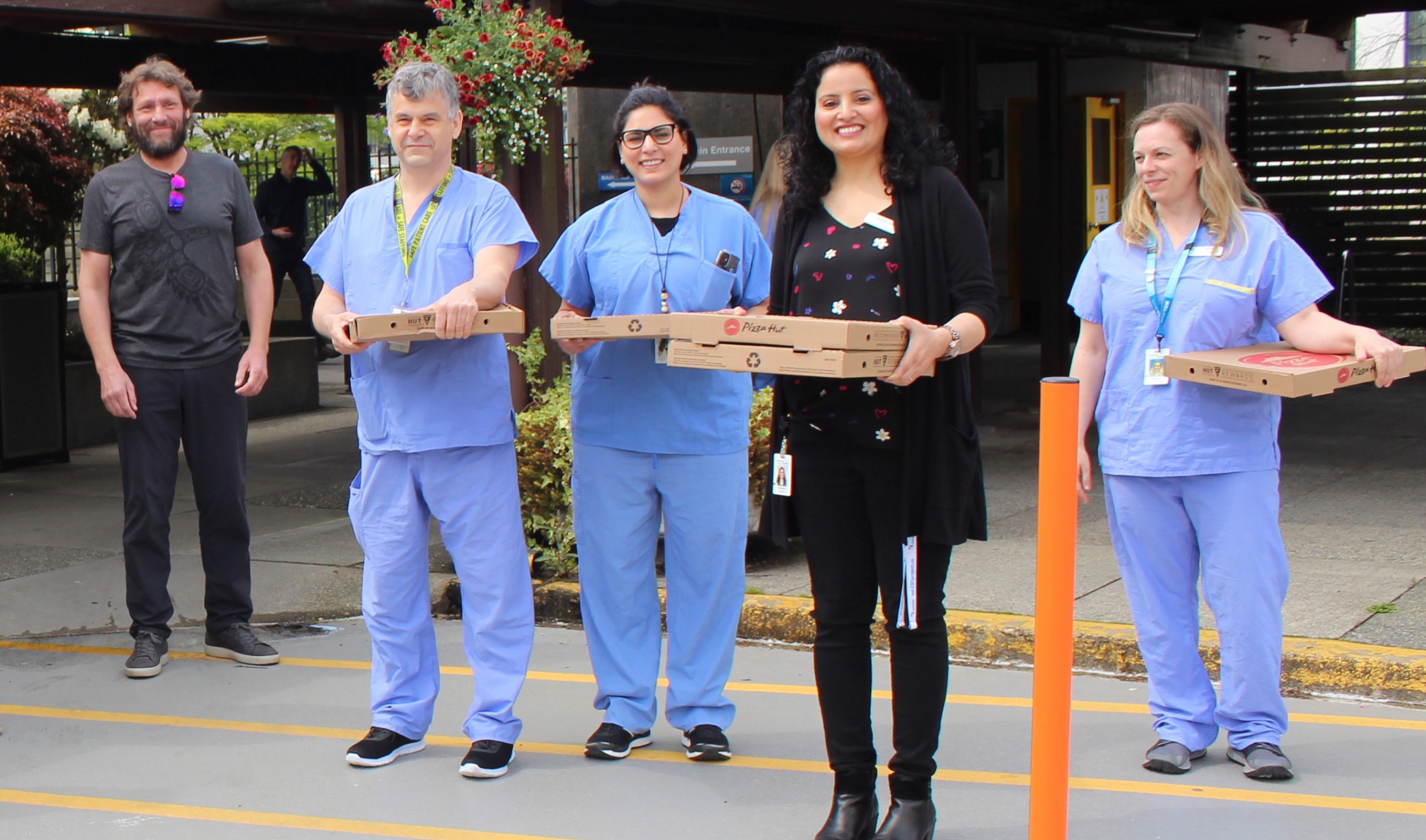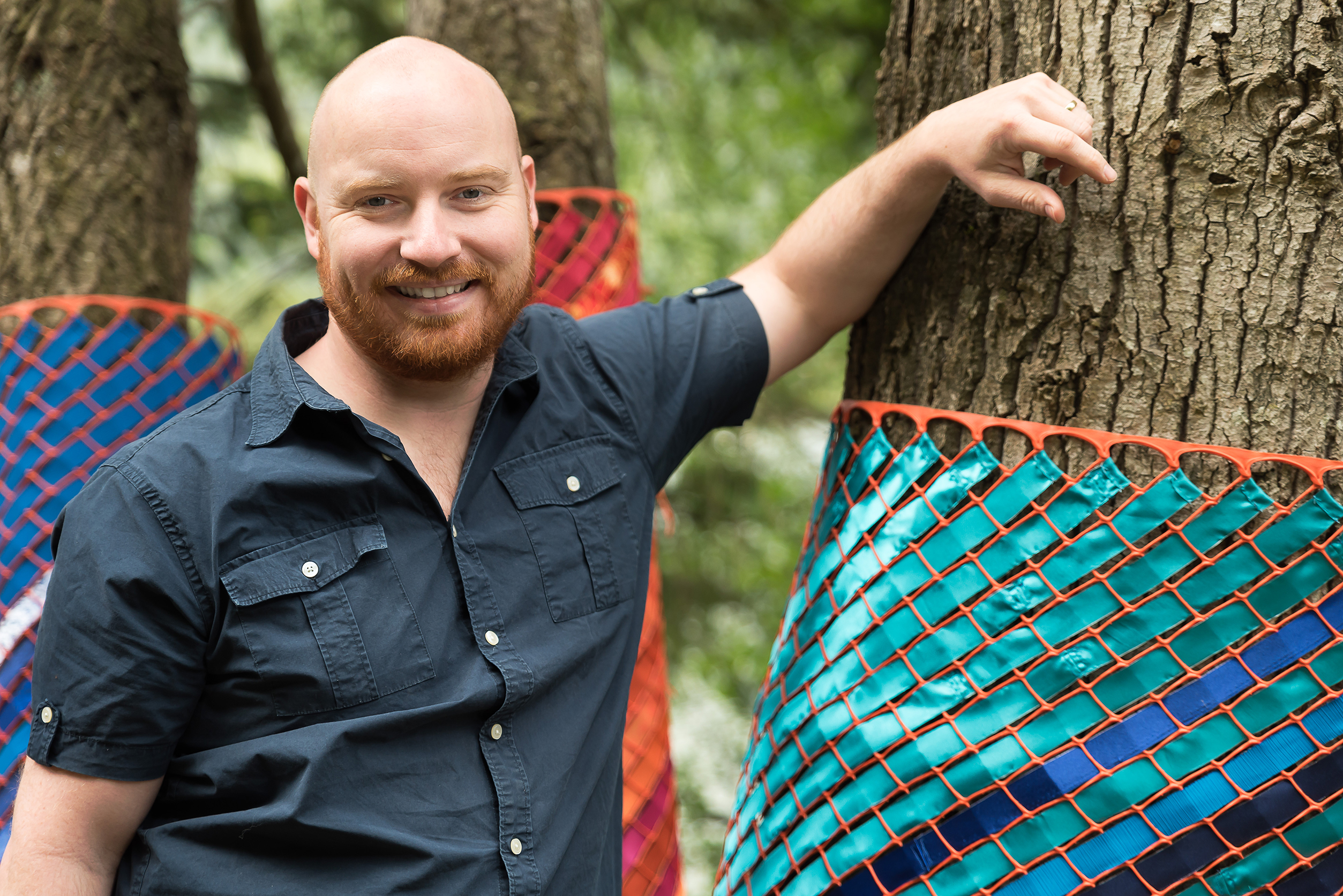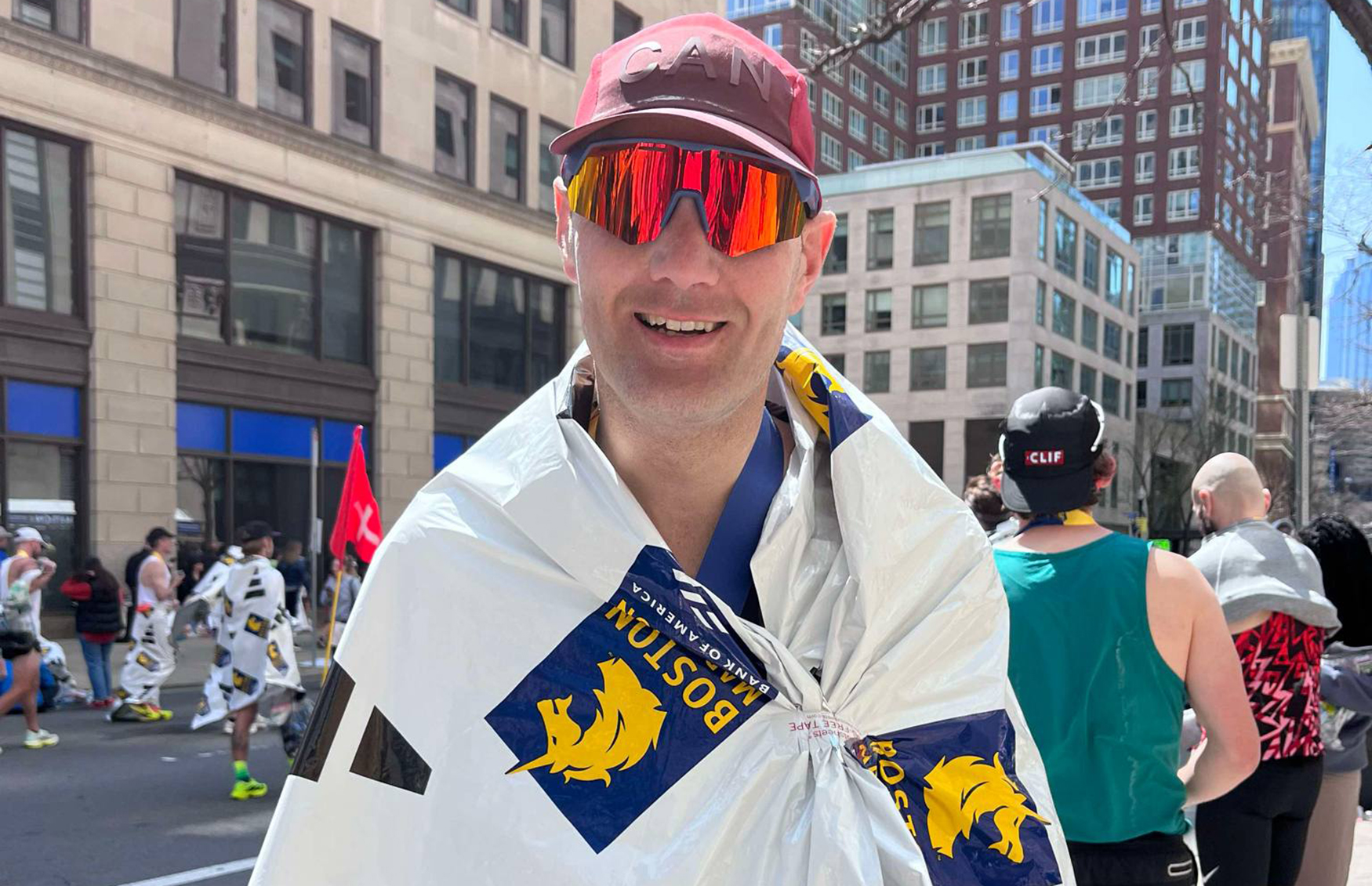Nursing alumna leads key teams in COVID-19 fight in North Vancouver
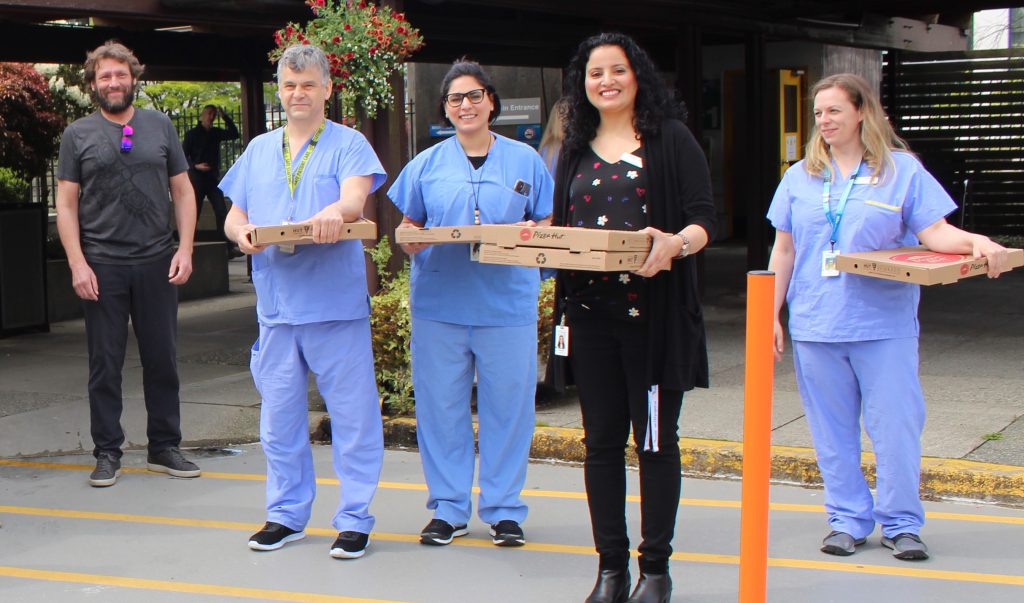
A key skill for being a good manager is the ability to adapt to challenges, and to lead your team through them.
Given that she is program manager of emergency, intensive care, and acute respiratory services at Lions Gate Hospital in North Vancouver, Surjeet Meelu has had her skills tested in a big way since early March.
The North Shore was the first epicentre of the COVID-19 virus pandemic in British Columbia, which means Meelu and her teams had to quickly strategize about how to treat patients with the virus in their ER and ICU.
Meelu, who graduated from UFV with a Bachelor of Science in Nursing in 2000, says that the pandemic has stretched her leadership skills and brought them to a whole new level, and credits her teams with rising to the challenge with her.
“A leader is only as strong as her team. My primary focus was to respond to the needs of our patients and my teams, and ensure that we were able to support our patients as a system. My teams worked endless hours in collaboration with our physician colleagues to come up with quick strategies to ensure everyone felt comfortable looking after COVID-19 patients in the ER and ICU. And, of course, the respiratory therapy team is at the forefront of respiratory care of these patients.”
The advent of COVID meant big changes for all the areas Meelu is responsible for. “Within a few days in early March, we changed the layout of our Emergency Department to ensure we were able to support a sorting system to triage our patients effectively and efficiently. We wanted to ensure that COVID-suspect and non-COVID patients were not mixed.”
And suddenly, wearing full personal protective equipment (PPE) became part of their workplace reality.
“Our teams ran daily simulations to practice PPE donning and doffing protocols using various scenarios. We adapted our strategies from what we learned in the simulations. We adjusted our nursing staffing model in all program streams to ensure we were able to support COVID-positive, COVID-suspect and non-COVID patients throughout the facility and health authority.”
As VCH implemented an Emergency Operations Committee 24/7 so the system could respond to ever-changing demands on a daily basis, health-care leaders like Meelu worked around the clock to support their teams.
“The biggest impact I noticed was adapting to changing information on a daily or hourly basis and keeping the teams informed. Managing change fatigue was key for our frontline teams.”
They also had to adjust to a hospital environment where families no longer had the freedom to visit.
“Moral and ethical dilemmas around visitation guidelines during the COVID pandemic in ICU has had a significant impact on our team. This is not our norm; our ICU team takes great pride in providing family-centred care. As a manager and a leader, it is my job to keep my teams informed and focused on what is best for our patients and families.”
The challenges were numerous and arrived at a rapid pace. With those challenges came debate about how to handle them.
“The speed with which the conflict evolved daily among various health-care professionals in the name of changing and conflicting information was incredible. I adapted my strategy to hold daily huddles with our physician colleagues and frontline leaders to stay on the same page and in one unified direction. As a leader, my job was and is to keep my teams calm and focused on the task at hand: care of our patients.”
As expected, the pandemic has taken its toll mentally and emotionally on Meelu and her teams. “Managing my own mental health and that of my teams during this tough time has been challenging. My frontline teams came up with strategies to support each other – such as a ‘wall of positivity’ to share appreciation for their work and keep each other motivated to keep showing up.”
She is grateful for the resiliency of her team members.
“I am in awe of the resiliency I have witnessed in my teams and pleased with my own ability to manage conflict during these tough times. The speed at which I had to make decisions in collaboration with my team and senior leadership every hour was incredible. I feel a deep sense of gratitude to be a part of the teams I lead. I am in awe of how everyone stepped up to this challenging time. My frontline teams are true healthcare heroes. They kept showing up day after day while dealing with their own anxieties and knowing that they could get sick from exposure to COVID-19 at work.”
Meelu credits her nursing education at UFV and continuing studies afterward with helping her prepare for being a health-care leader during a pandemic.
“UFV is by far my favorite educational institution. I like the educational approach to nursing there. UFV prepared me well before I stepped into the nursing workforce. And I have learned so much along the way through practice and further education. The power of learning never ceases to amaze me. I am always learning and growing.”
Meelu has held different leadership roles and worked at many sites in Fraser Health before joining VCH. She completed her Master of Nursing in 2011.
“I want to pursue a PhD in social sciences because I am very interested in behavioral sciences in healthcare settings. I have taken many leadership courses all along my journey as a nurse.”
And her relationship with UFV continues.
“I have hired very talented nurses from UFV nursing program. They bring lots of hands-on experience.”
Her entire nursing journey brought her to a place where she was prepared to rise to the challenge of COVID-19.
“I think my collective experience in health care has prepared me well to deal with the COVID-19 pandemic. An ability to adapt to change, to make quick decisions and respond efficiently is the key. Acknowledging that we don’t know everything and working with whatever information we do have is important.
“As a leader, I’ve had to deal with a lot of uncertainty. With uncertainty comes fear of the unknown. Managing conflicting information was challenging but not unmanageable. We figured things out together as a team. We made decisions collaboratively and stuck with them until information changed and we went back to the drawing board again.”
And, of course, the pandemic affected her family life.
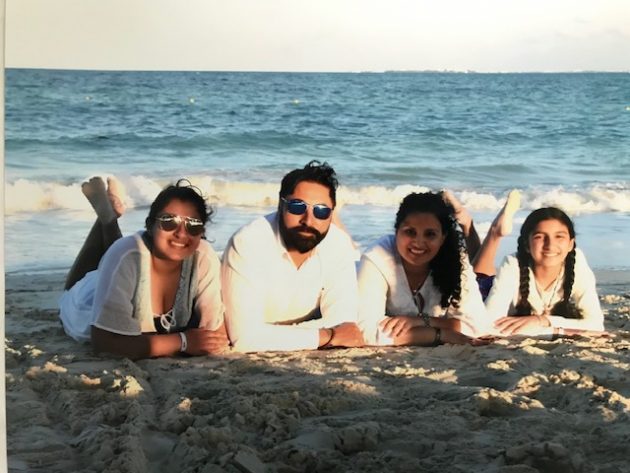
“Being a manager means you have two families: one at home and one at work. The needs of both are important and can’t be ignored. This pandemic pushed the priority higher for my work family. My home family didn’t first understand how big the impact was but as social media about the situation began to spread, they realized how much my teams depend on me. Once the reality set in — they were more than supportive. I worked long hours and came home late. No one complained.”
This went on for nine weeks.
“Things are now starting to slow down and living in a pandemic is becoming the new norm. My kids are still home and wondering what their school life will look like moving forward. I talk with my kids a lot. I keep them informed of what our COVID world looks like and what they need to think of when they go back in society.
“My older daughter Manjot is graduating this year. She has really felt the impact of COVID. Prom is off. She is socially isolated from her peers and doing virtual school. Virtual connection with her friends is important.”
Manjot hopes to continue the family tradition of attending UFV. She has applied for Bachelor of Science degree program.
A major theme of Meelu’s experience during the pandemic is gratitude.
“I keep reflecting on my experience as a health-care professional, a mother, a daughter and a wife. I feel privileged to be part of a health-care team during this difficult time; I can only imagine how our patients and families are feeling.
“As a nurse leader, I feel nothing but a deep sense of gratitude during this pandemic. Health-care teams have stepped up to this challenge without complaining. I have witnessed care, compassion, empathy, resilience and authentic leadership. This crisis has brought us together and we are a strong team.
“Communities have supported us with generous donations of food and other donations to thank health-care workers for their efforts. We continue to get encouragement in various forms — thank you cards, and cheers from our partners such as police and fire departments, paramedics, and the local community at shift change. I am so lucky to be a nurse. I have witnessed and experienced generosity like no other time. We are stronger together. We can do anything and achieve anything if we put our minds to it. We will fight this pandemic together. Together we are so much more!”


